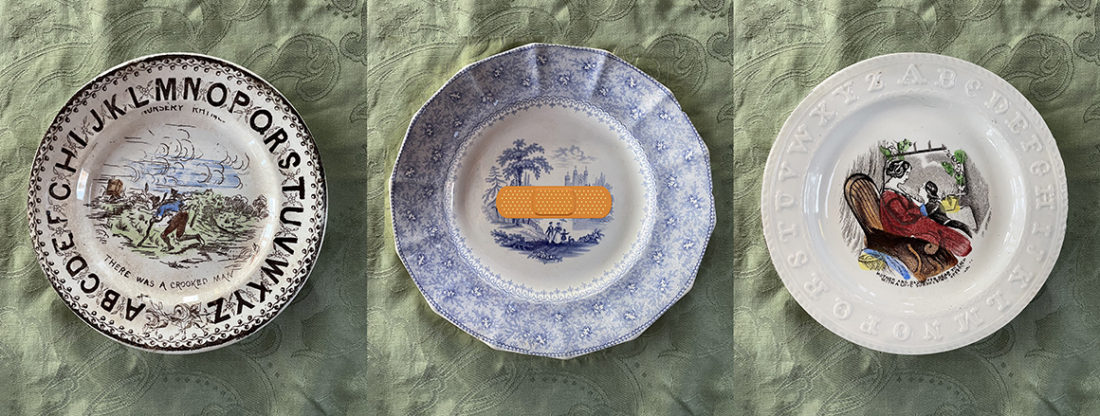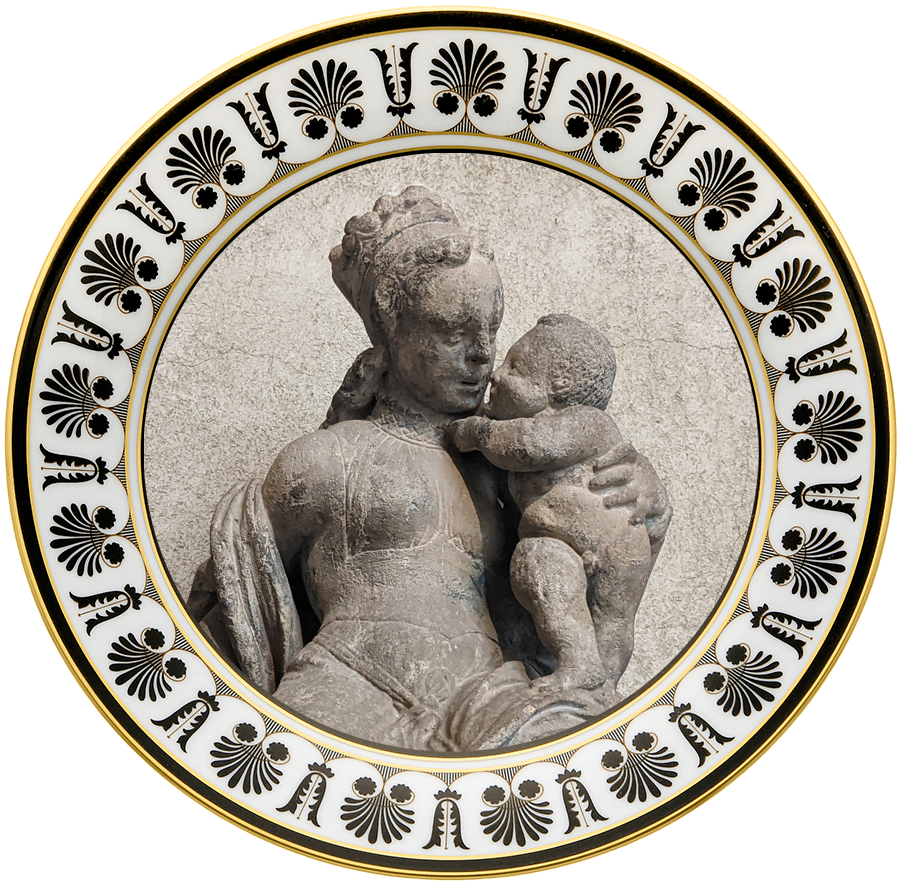Her son doesn’t turn around when she
calls after him, her voice startling the
blue jays at the feeder and a pair of
chipmunks hiding among the stalks of
last year’s peonies, scarlet buds just
emerging through the black dusk-dewed
mulch; it echoes like the flickering street
lights, each syllable captured frame
by frame. He walks away to say
his name does not belong to her, to say
this is how he will know his father. Against
the arc of the day’s passing, in an
anguish so bloated she cannot move,
all absences gather at her doorstep.
She calls his name again in a voice that
leans into disquietude, into her
mother’s voice, broken, which long ago
asked, “how is your marriage?” and in the
stillness of no answer, she pockets the
powder blue mask her son refused to take
and recalls a newspaper photo
from thirty years ago, the father from
Aleppo, holding his child, suffocated,
the gas mask held too tightly. The
suffering imprisoned in time. She
will ask her neighbors have you seen my son?
He hides in his music and under his hood.
Will anyone open their doors to me?
He will see his friends, he said. He has not
seen what she has seen. He has not seen how
one sorrow can replicate itself.
If you love me, you’ll let me go. As though
the trite is unique. As though life and death
are opposite, and suffering for what
is right is different than suffering for
our wrongs. As though the pieties of our
time include the strong embrace of a
father, and turning around is the same as
coming back. As though words and images
can collide, contradict or cancel each
other out, disappear into the night like
her son who doesn’t turn around when she calls.

